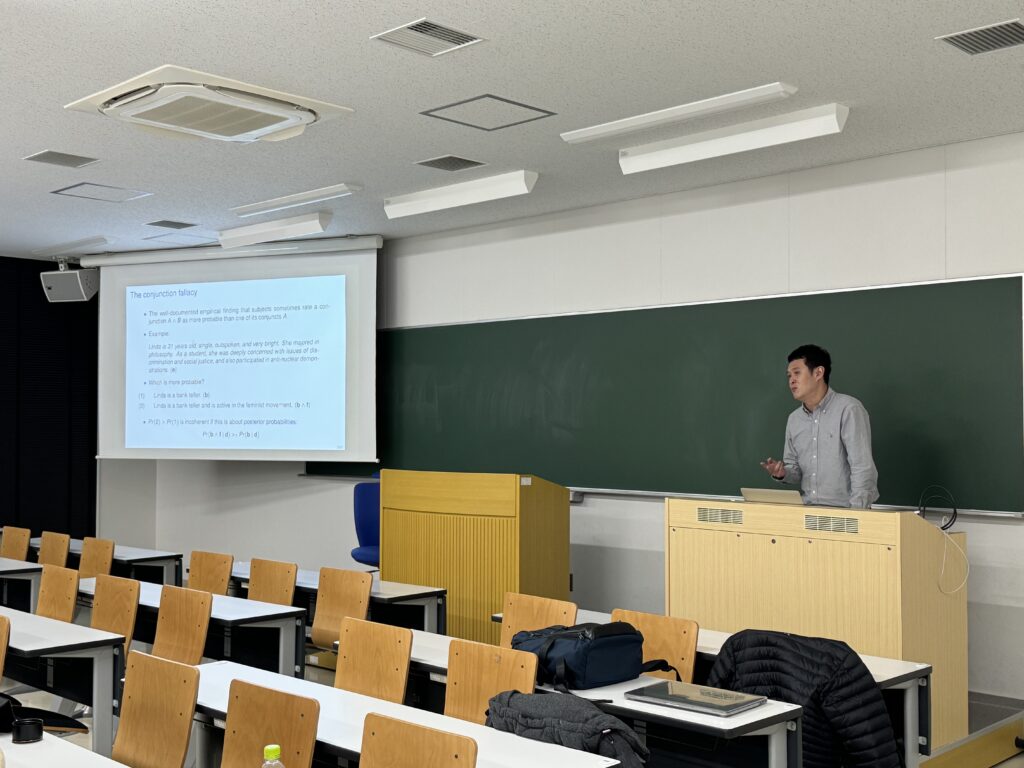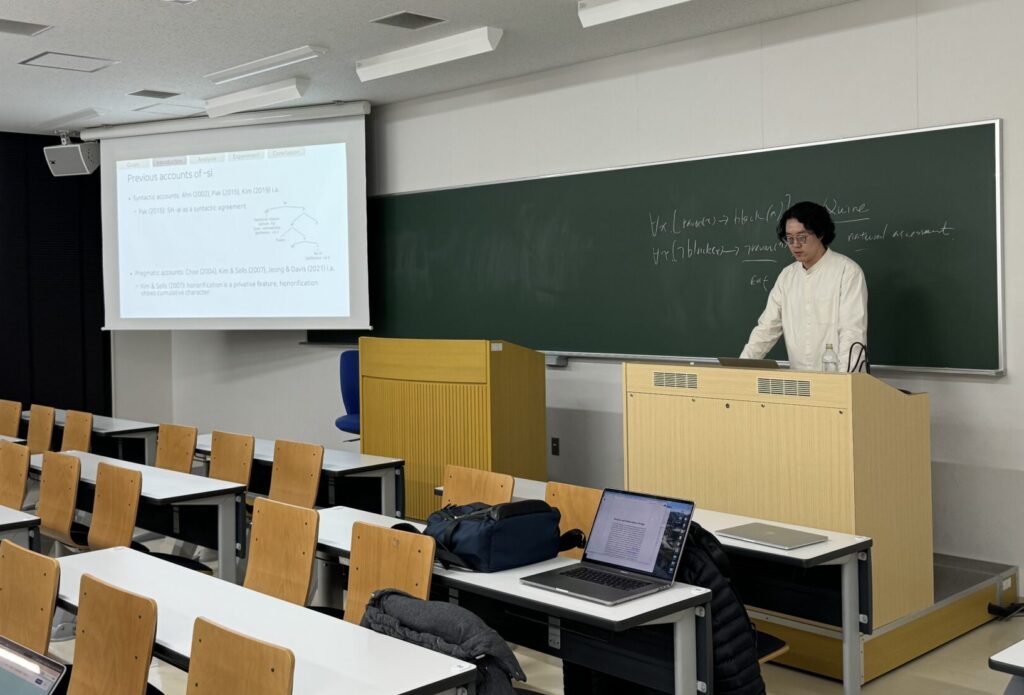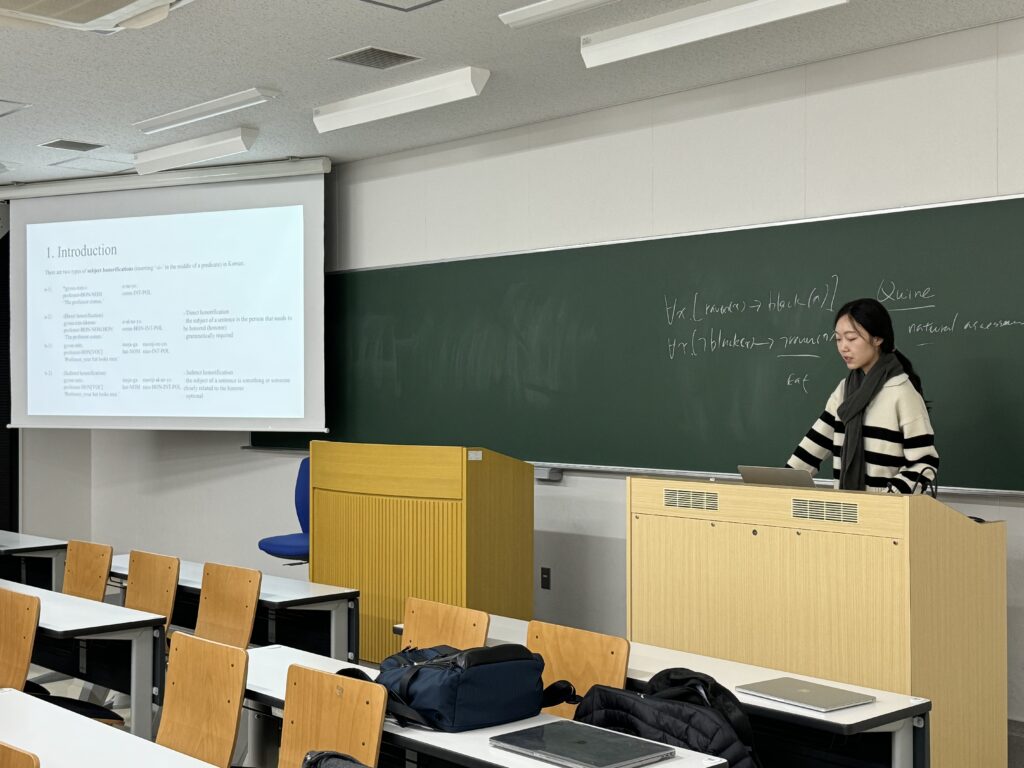LinQS2024
We had the QU-SNU Joint Linguistic Colloquium (LinQS 2024) on January 17, 2024. We invited Professor WooJin Chung (Seoul National University) and two graduate students from SNU.

Speaker: WooJin Chung (Department of Linguistics, Seoul National University)
Title: The Conjunction Fallacy: Confirmation or Relevance?
Abstract: The conjunction fallacy is the well-documented empirical finding that subjects sometimes rate a conjunction A&B as more probable than one of its conjuncts, A. Most explanations appeal in some way to the fact that B has a high probability. But Tentori et al. (2013) have recently challenged such approaches, reporting experiments which find that (1) when B is confirmed by relevant evidence despite having low probability, the fallacy is common, and (2) when B has a high probability but has not been confirmed by relevant evidence, the fallacy is less common. They conclude that degree of confirmation, rather than probability, is the central determinant of the conjunction fallacy. In this paper, we address a confound in these experiments: Tentori et al. (2013) failed to control for the fact that their (1)-situations make B conversationally relevant, while their (2)-situations do not. Hence their results are consistent with the hypothesis that conversationally relevant high probability is an important driver of the conjunction fallacy. Inspired by recent theoretical work that appeals to conversational relevance to explain the conjunction fallacy, we report on two experiments that control for this issue by making B relevant without changing its degree of probability or confirmation. We find that doing so increases the rate of the fallacy in (2)-situations, and leads to comparable fallacy-rates as (1)-situations. This suggests that (non-probabilistic) conversational relevance indeed plays a role in the conjunction fallacy, and paves the way toward further work on the interplay between relevance and confirmation.


Talks by Graduate Students:
Gyu-Hwan Lee, “Verb raising and licensing of subject honorific marker in Korean: an experimental study”
Jaewon Oh, “An ERP Study on a Korean Honorific Marker ‘-si-‘”
This colloquium was supported by the Researcher Network Formation Promotion Program with Candidate Universities for Strategic Partnership from Kyushu University.

